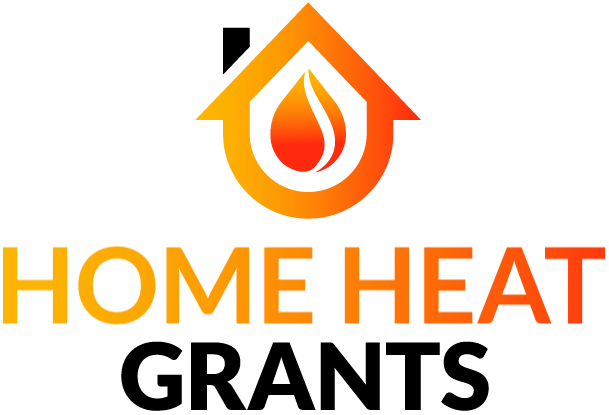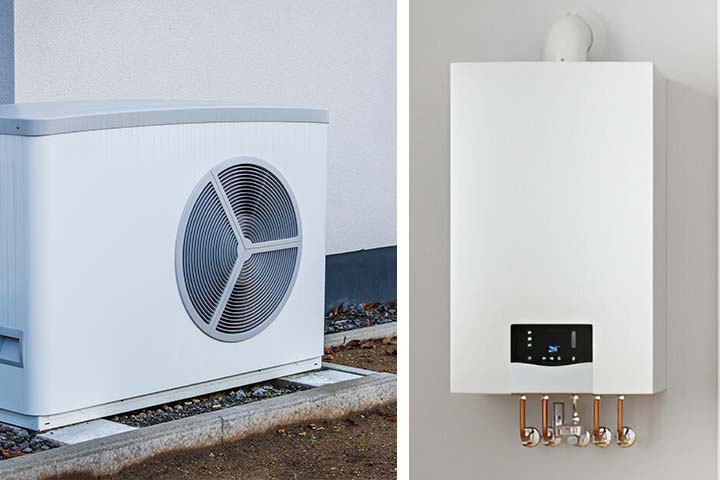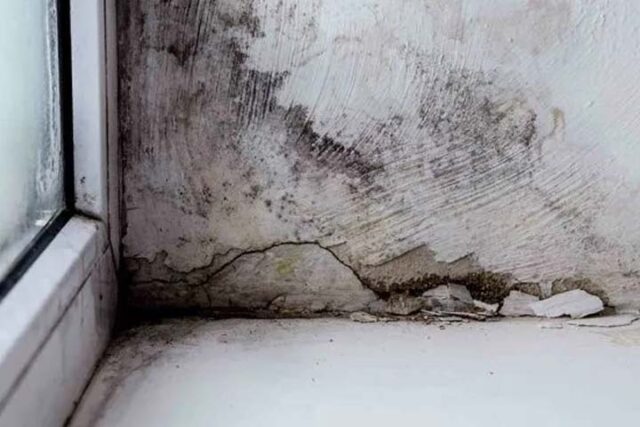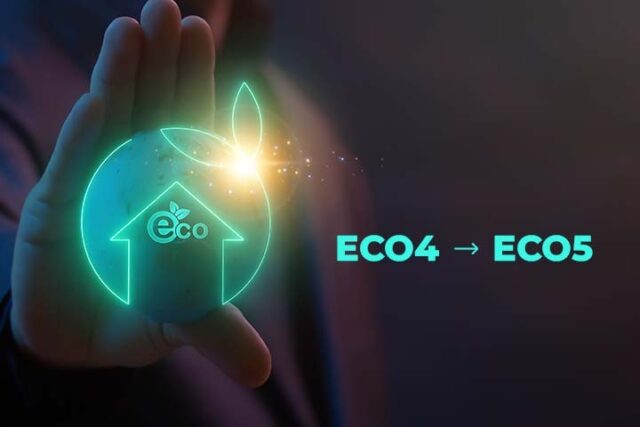The UK government’s ECO4 scheme (Energy Company Obligation Phase 4) aims to help households become more energy efficient by offering Free Boilers, Air Source Heat Pumps, insulation, and more.
Designed primarily for low-income and fuel-poor homes, ECO4 ensures long-term solutions that can save bills up to 40%, significantly reducing household energy costs.
Eligible homes can now access government-backed upgrades that not only lower utility bills but also shrink their carbon footprint. Whether it’s a new boiler or a cutting-edge heat pump, ECO4 makes it financially viable.
Understanding Air Source Heat Pumps
How They Work
Air source heat pumps absorb heat from the outside air—even in cold temperatures—and use it to heat your home and water. They operate much like a refrigerator in reverse, transferring thermal energy using refrigerants and compressors.
Benefits:
- Highly energy efficient
- Reduce CO2 emissions
- Ideal for homes with good insulation
- Can be used for both heating and cooling
Limitations:
- Higher initial setup cost (often offset by ECO4)
- Performance may slightly drop in freezing weather
Installation Process
Installing an air source heat pump typically takes 2–3 days. It involves placing an outdoor unit near your home, connecting it to your heating system, and possibly upgrading radiators or insulation to optimize efficiency.
Traditional Gas Boilers Explained
Working Mechanism
Gas boilers burn natural gas to heat water, which then circulates through pipes and radiators to warm your home. They’ve been a staple in UK households for decades.
Cost & Efficiency
- Initial Cost: Lower than heat pumps
- Efficiency: Around 85–90%
- Annual Bills: Tend to be higher due to rising gas prices
Common Issues
- Carbon emissions
- Boiler breakdowns and frequent servicing
- Dependency on fossil fuels
Cost Comparison Breakdown
Feature| Air Source Heat Pump | Gas Boiler | |
|---|---|---|
| Initial Cost | £8,000–£14,000 (covered by ECO4) | £2,000–£4,000 |
| Operating Cost | Lower (electricity-based) | Higher (gas-based) |
| Maintenance | Annual check-ups | Servicing every 1–2 years |
| Lifespan | 15–20 years | 10–15 years |
Energy Efficiency Comparison
Air source heat pumps boast efficiency ratings up to 300%, meaning they generate three times the energy they consume. In contrast, even a new gas boiler can only reach about 90% efficiency.
This makes heat pumps a clear winner in the energy savings race, especially when integrated with smart thermostats and well-insulated homes.
Environmental Impact
Switching to a heat pump can cut your home’s carbon emissions by up to 70%. Since they use renewable energy from the air, they drastically reduce dependence on fossil fuels, unlike traditional gas systems.
Government Grants & Free Boiler Eligibility
If you meet certain criteria—such as being on a low income, receiving government benefits, or living in a poorly insulated home—you could qualify for a Free Boiler or Free Heat Pump Installation under ECO4.
To apply:
- Fill out a quick eligibility checker online.
- Receive a no-obligation home survey.
- Schedule the free upgrade if approved.
Real-World Savings Under ECO4
Many UK households have already slashed their bills thanks to ECO4. Take Mrs. Johnson from Leeds—after switching to an air source heat pump, her monthly bill dropped from £120 to just £70. That’s a 42% reduction, all without spending a penny upfront.
Performance in UK Climate
While gas boilers maintain steady output in all seasons, air source heat pumps are now designed to operate efficiently down to -15°C, making them suitable even for harsh UK winters.
Installation Requirements
Installing an air source heat pump requires a bit more planning than swapping out an old boiler. Here’s what to consider:
Space Requirements
You’ll need:
- Outdoor space for the unit (usually a wall-mounted box)
- Enough clearance around the unit for air flow
- Indoor adjustments like hot water cylinders or updated radiators
Time & Disruption
- Installation typically takes 2–3 days
- There may be slight noise from the external unit
- Older homes may require insulation upgrades for maximum efficiency
In comparison, a gas boiler replacement is quicker and requires less space, but this often comes at the expense of long-term efficiency and environmental impact.
Lifespan and Durability
Air source heat pumps generally last 15–20 years, provided they’re maintained well. In contrast, gas boilers usually need replacement after 10–15 years.
Plus, heat pumps have fewer mechanical components that wear down, making them more reliable in the long run.
Home Suitability Factors
Not every home is equally suited for either system. Here’s a breakdown:
Home Feature | Ideal for Heat Pumps | Ideal for Gas Boilers |
|---|---|---|
| New Build or Retrofit |  Yes Yes |  Yes Yes |
| Small Garden or Yard |  Yes Yes |  Yes Yes |
| No Outdoor Space |  No No |  Yes Yes |
| Poor Insulation |  No (must upgrade) No (must upgrade) |  Yes Yes |
| Off-Gas Grid Homes |  Yes Yes |  No No |
Homes with good insulation and space for the pump will see the best returns from switching to a heat pump.
Maintenance and Servicing
Heat Pumps:
- Annual checks are recommended
- Low servicing costs
- Filters and outdoor unit need occasional cleaning
Gas Boilers:
- Require annual servicing
- More prone to breakdowns
- CO2 and gas leak risks if not properly maintained
Over time, this gives heat pumps an edge in long-term reliability and lower maintenance costs.
Switching Systems: What to Expect
Thinking of upgrading from a gas boiler to a heat pump? Here’s what you’ll go through:
- Assessment: Energy efficiency and insulation checks
- Grant Application: Under ECO4 or similar programs
- Installation Prep: Radiator or pipework modifications
- System Installation: Usually 2–3 days
- Aftercare & Support: Ongoing support from certified installers
While switching might seem like a hassle, the long-term rewards are worth it.
Myths & Misconceptions Debunked
Let’s clear up some common myths:
“Heat pumps don’t work in the UK.”
False—modern units are effective in sub-zero temperatures.
“Gas is cheaper than electricity.”
Maybe today, but electricity is getting greener and cheaper every year.
“Free boilers and heat pumps are scams.”
ECO4 is a legitimate, government-backed scheme with real savings.
Expert Opinions & Recommendations
Experts from Ofgem and the Energy Saving Trust recommend transitioning to heat pumps for long-term savings and environmental benefits.
While gas boilers still have a place, especially for homes not ready to retrofit, air source heat pumps are the future of home heating in the UK.
FAQs
Can I get a free heat pump under ECO4?
Yes, if you meet eligibility requirements based on income, benefits, or energy rating.
Are heat pumps noisy?
Not at all! Modern models run quietly and won’t disturb your neighbours.
Do I need to replace my radiators?
Possibly, if they’re too small. The installer will check and advise.
How much can I really save?
You can save bills up to 40% depending on your current setup and home efficiency.
Is maintenance costly?
Heat pumps require very little maintenance and cost less over time compared to boilers.
How long does ECO4 approval take?
Typically, 1–2 weeks from initial check to installation date.
Conclusion: Which One Truly Saves You More?
If you’re choosing between an air source heat pump vs gas boiler, the winner is clear for most modern homes: the air source heat pump.
More energy efficient
Lower long-term costs
Supported by Free Boiler schemes like ECO4
Environmentally friendly
Helps you save bills up to 40%
While gas boilers still have a role, especially for homes with infrastructure challenges, anyone eligible for ECO4 should seriously consider making the switch to Future proof their home and finances.




